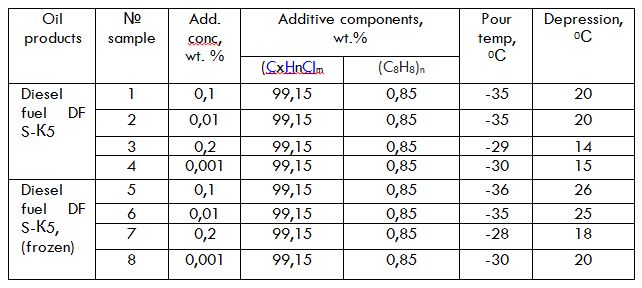
Myrzakhanov Maxat Makhmudovich
Kazakh-British Technical University, Republic of Kazakhstan
Title: Composition for reducing the pour point of diesel fuel
Biography
Biography: Myrzakhanov Maxat Makhmudovich
Abstract
The current economic situation in the country and the high physical wear and tear on the equipment of domestic refineries make it possible to influence the quality of diesel fuel only by reducing the beginning of its boiling. It should be noted that less than 1% of the produced diesel fuel is produced from the diesel fuel and about 10% is winter, the rest is summer, which does not correspond to the climate of our country at all. Forced use of summer diesel fuel in winter conditions leads to a huge over expenditure. At present, the production of high-quality diesel fuels is impossible without the addition of additives of various functional purposes, such as cetane-raising, anti-wear, anti-smoke, detergent, antioxidant, dispersant, depressant and others.
In developing depressant additives to diesel fuel a lot of work has been done. Many compositions of popular solvents and additives were studied, as a result of which we came to the final choice of the necessary components for the development of this additive. Numerous organic solvents were used as the solvent, but for this type of additive, it did not show satisfactory results, which led to a study of the characteristics of the desired solvents with suitable properties.
The main component was polystyrene. As we all know, polystyrene has a low density (1060 kg/m³), has excellent dielectric properties and good frost resistance (down to -40 °C), it suited as an excellent solvent for obtaining a depressant additive. It also has a low chemical resistance (in addition to dilute acids, alcohols and alkalis). It dissolves in acetone, toluene, dichloroethane, more slowly in gasoline.
As a result of the tests, excellent results were obtained, but with varying concentrations, the results varied. Therefore, the task was to determine the optimum concentrations of the components in the depressant additive. After carrying out numerous tests with varying concentrations of components, data were obtained that allowed to determine those values at which we obtained the most rational values.
To improve the low-temperature properties of hydrotreated diesel fuel, we first proposed the use of additives based on polymer ethyl derivatives of benzene. It was found that the depressant additive is a 10% polymer solution in a chlorinated alkane. The introduction of an additive based on PC-10 in an amount of 100-1500 ppm in hydrotreated diesel fuel reduces the pour point of the hydrotreated diesel fuel (Table 1). When comparing the pour point of diesel fuel with the Dodiflow commercial additive, it is established that the action of the additive based on PC-10 is more effective than in the case of commercial additive, which is a polymer of ethyl derivatives of benzene. The pour point of the diesel fuel with the additive PC-10 is -35 °Ð¡, whereas when using the commercial additive -34 °Ð¡.
The additive developed on the basis of the polymer of ethyl benzene derivatives is not inferior in effectiveness to the currently used commercial additive Dodiflow.
Table 1. Temperature of solidification of diesel fuel with depressant additives
Table 2. Changes in the pour point in diesel fuel


